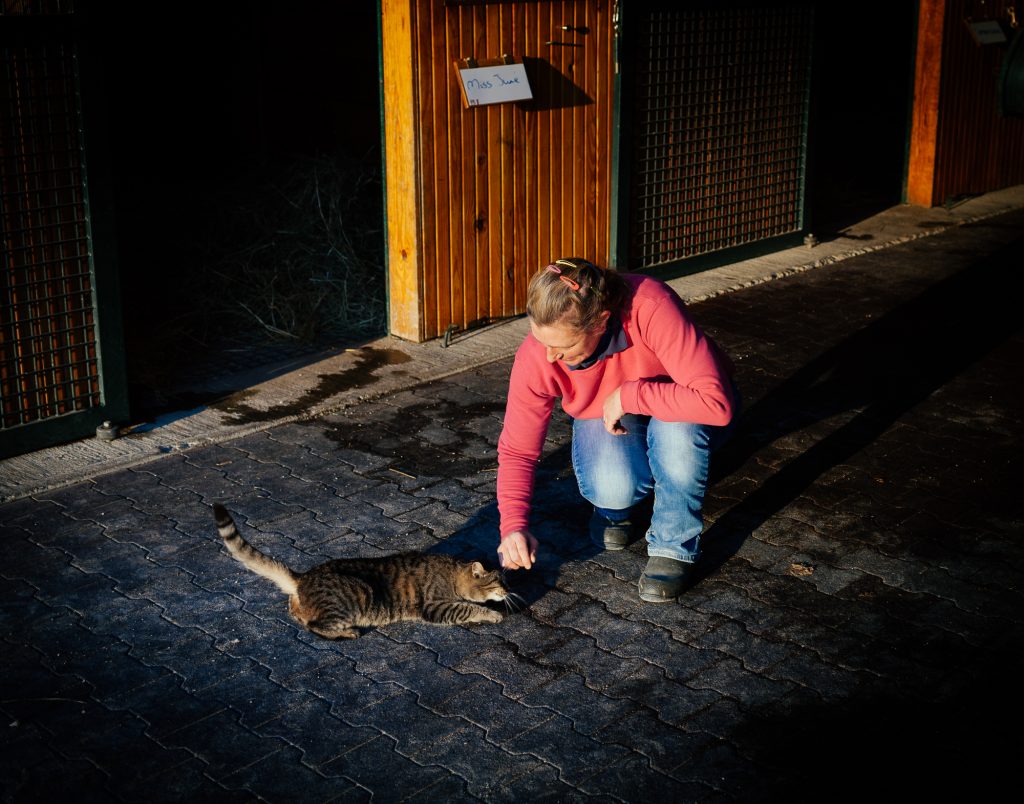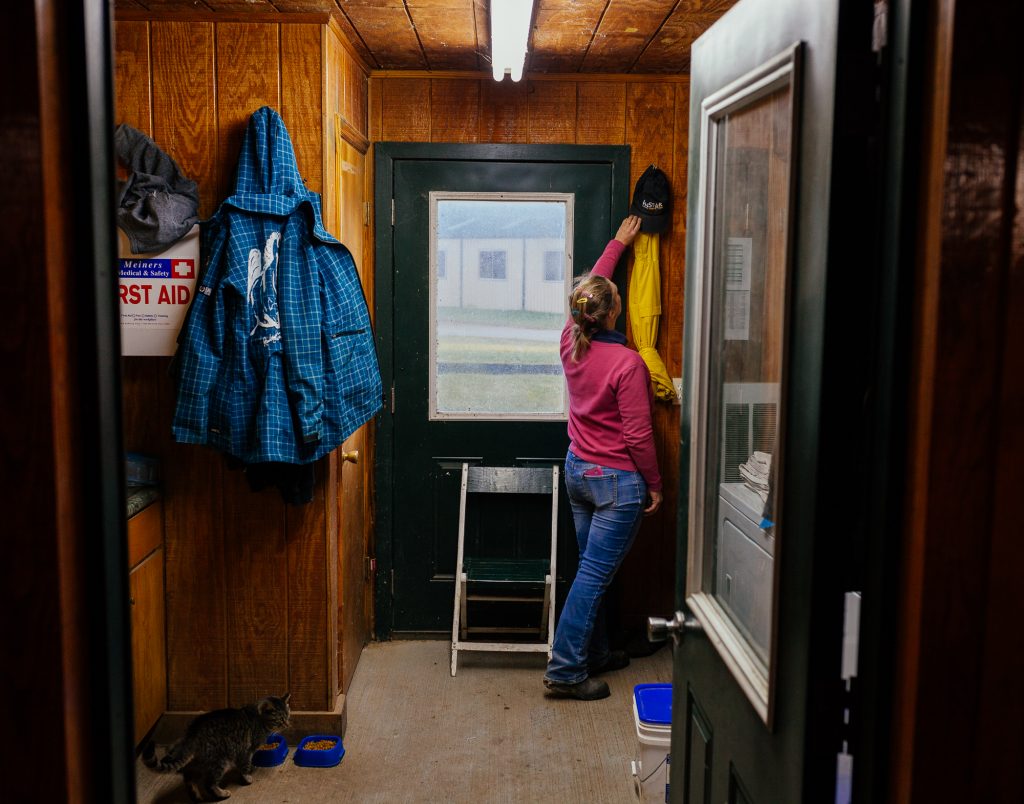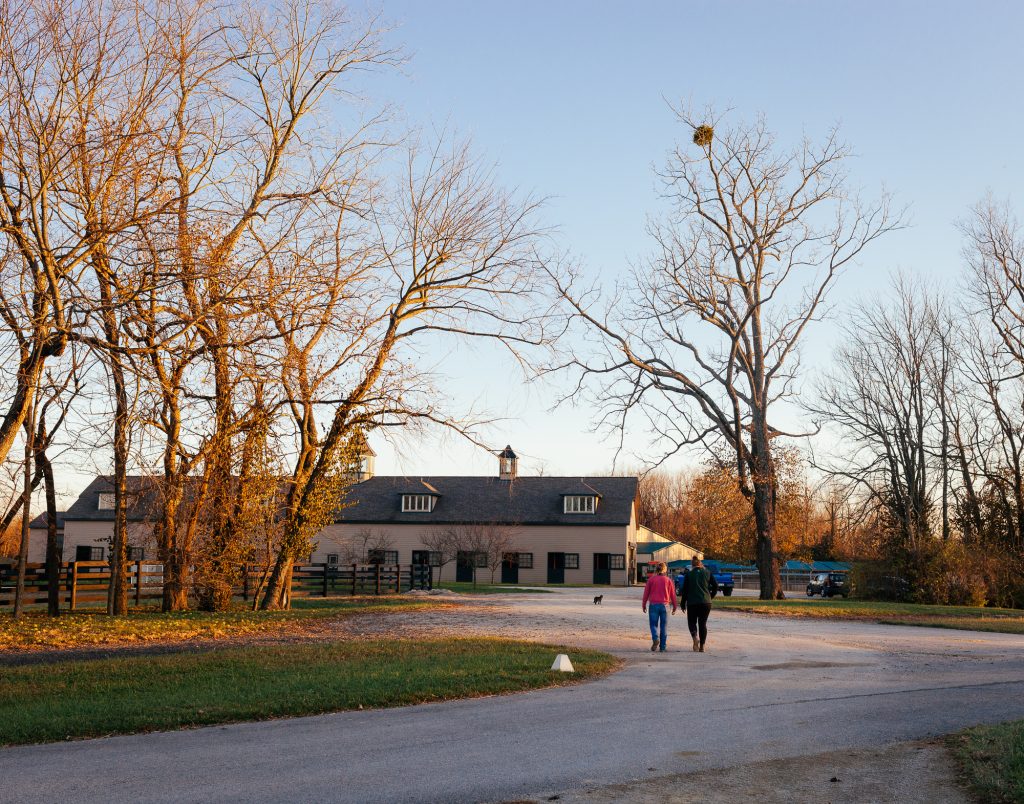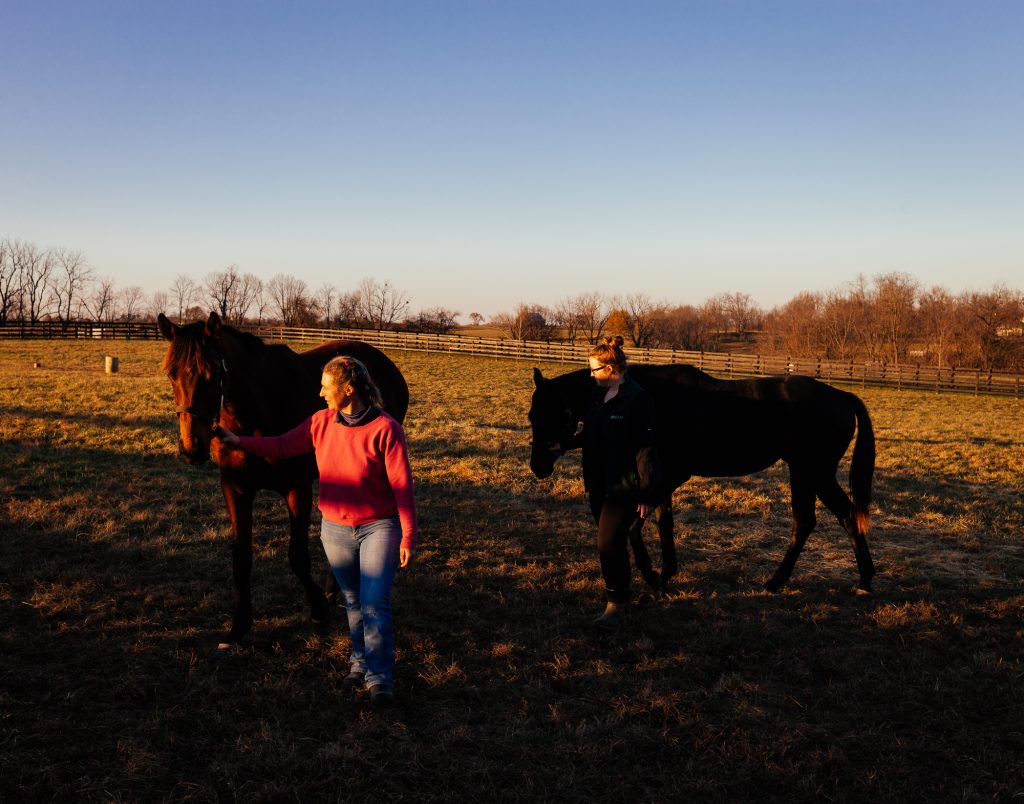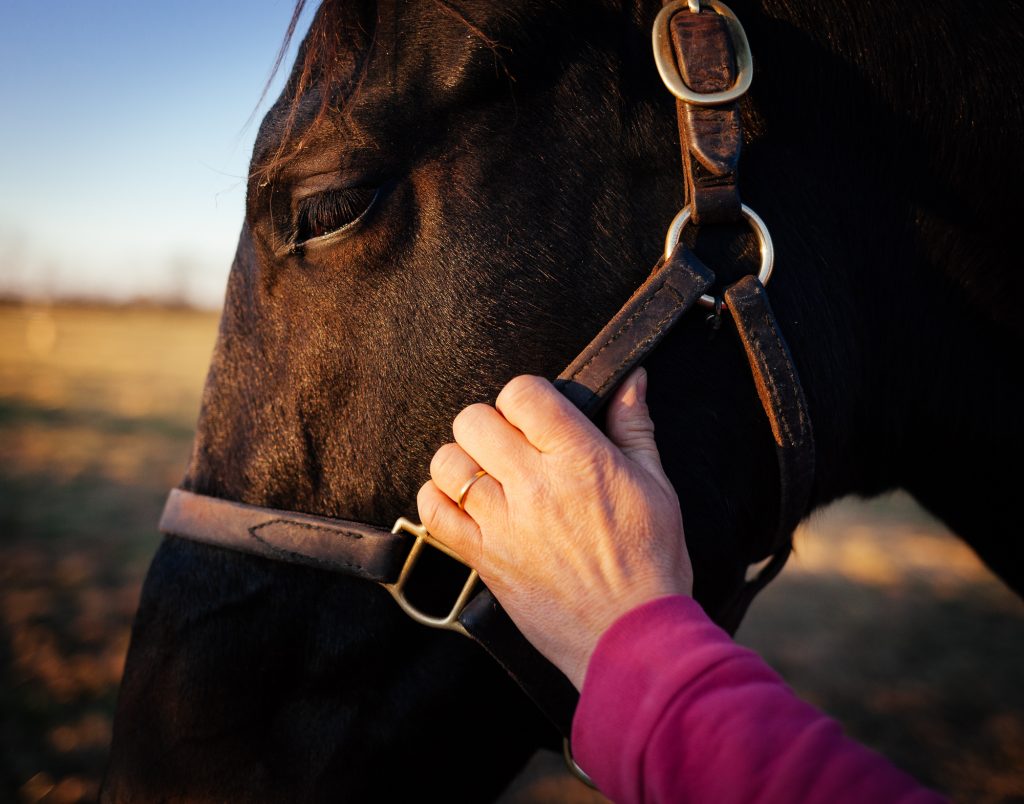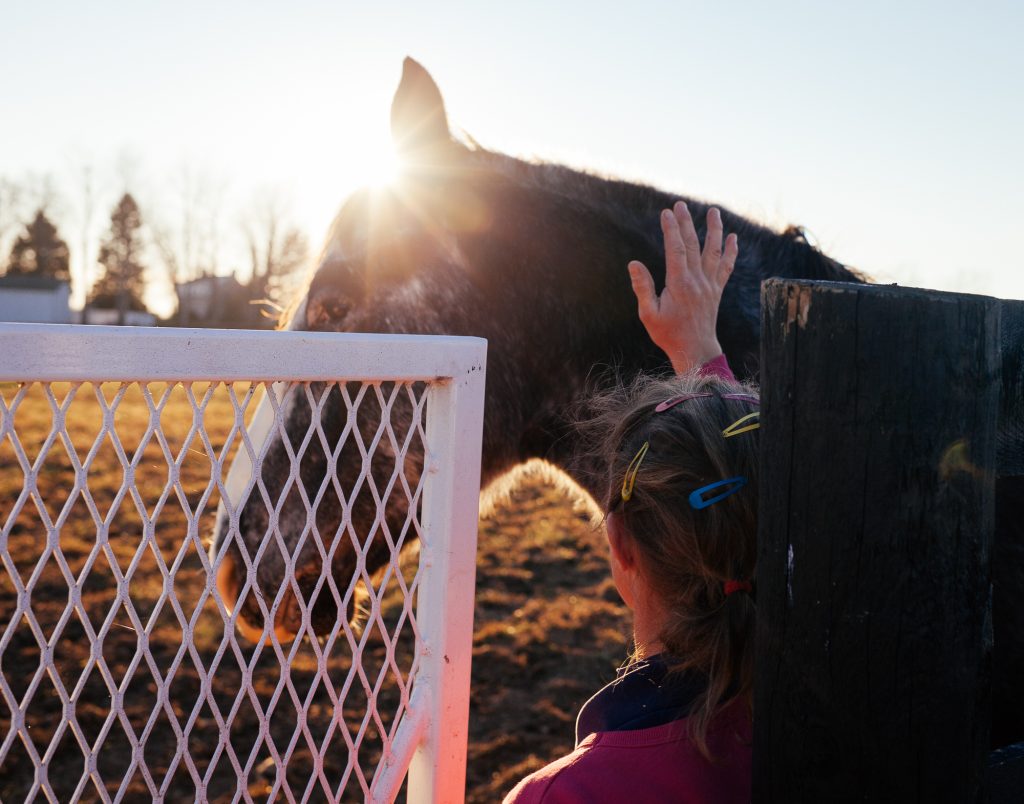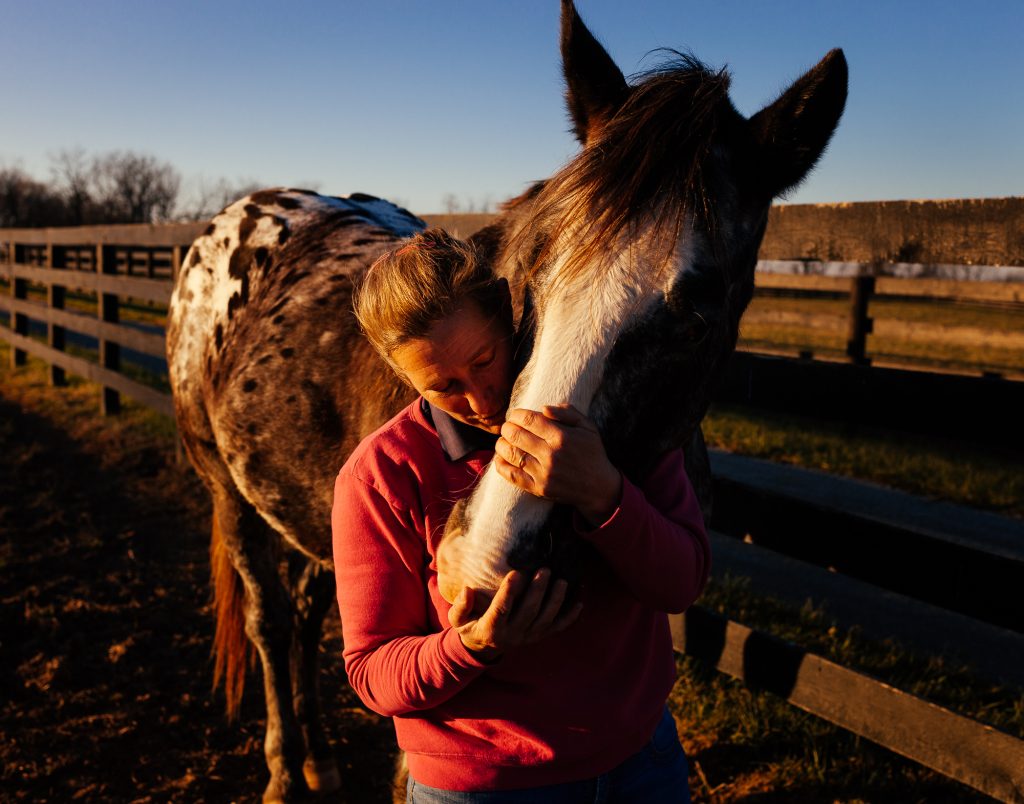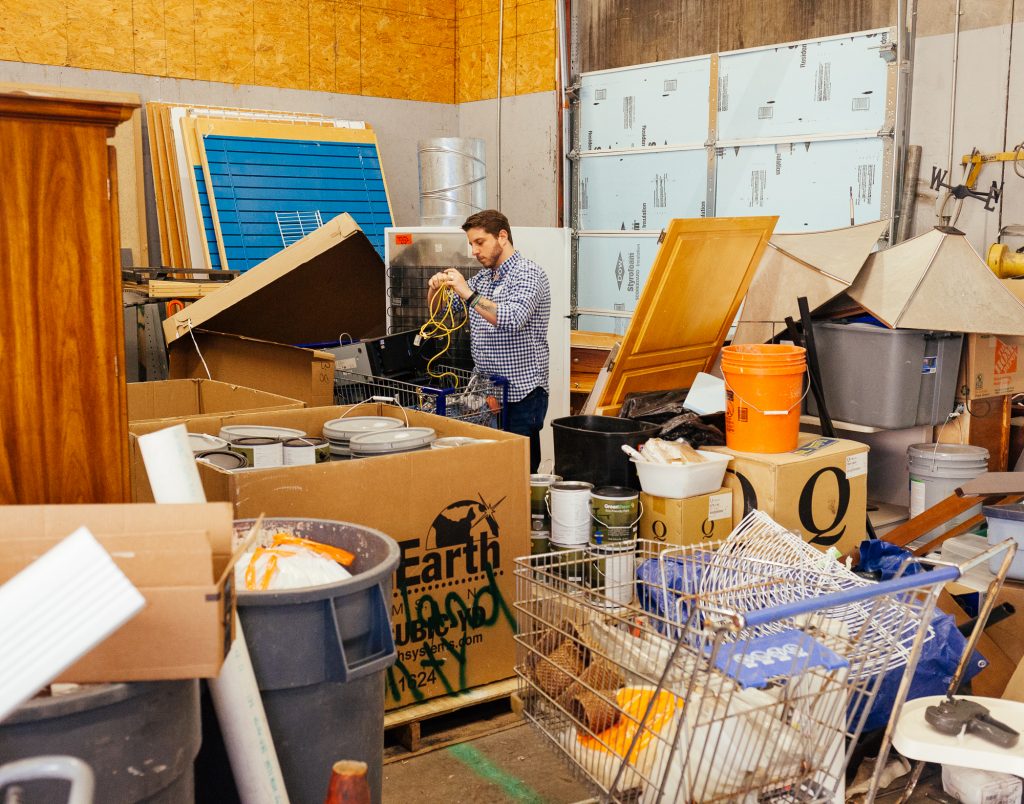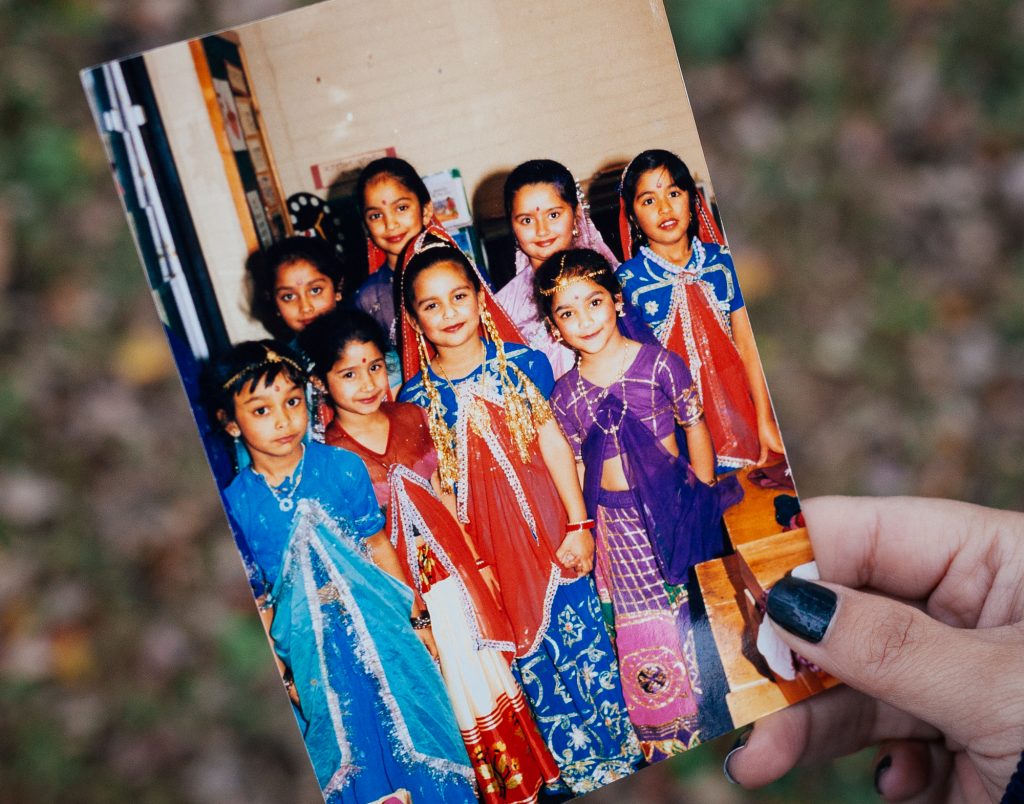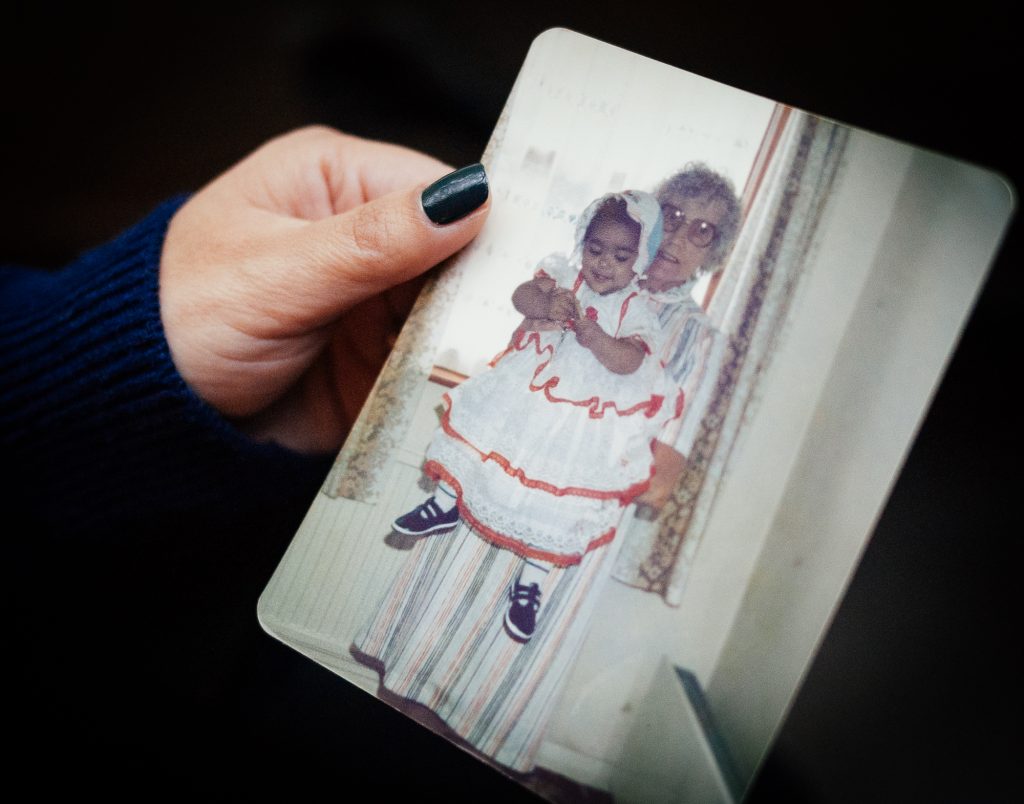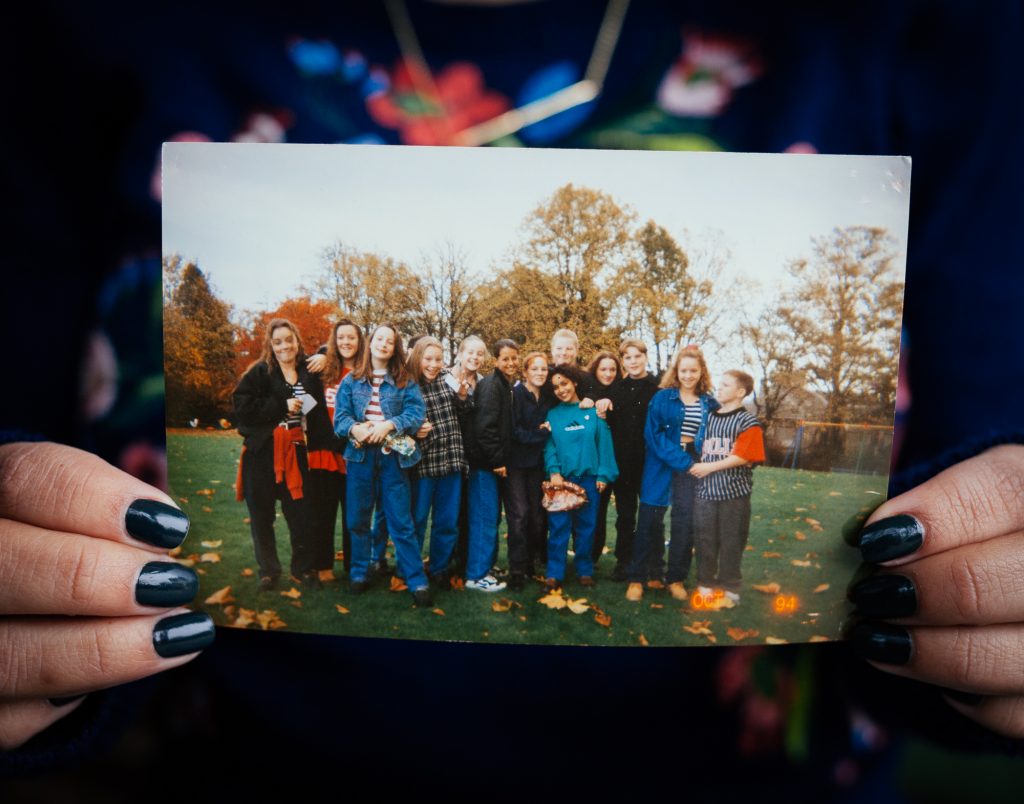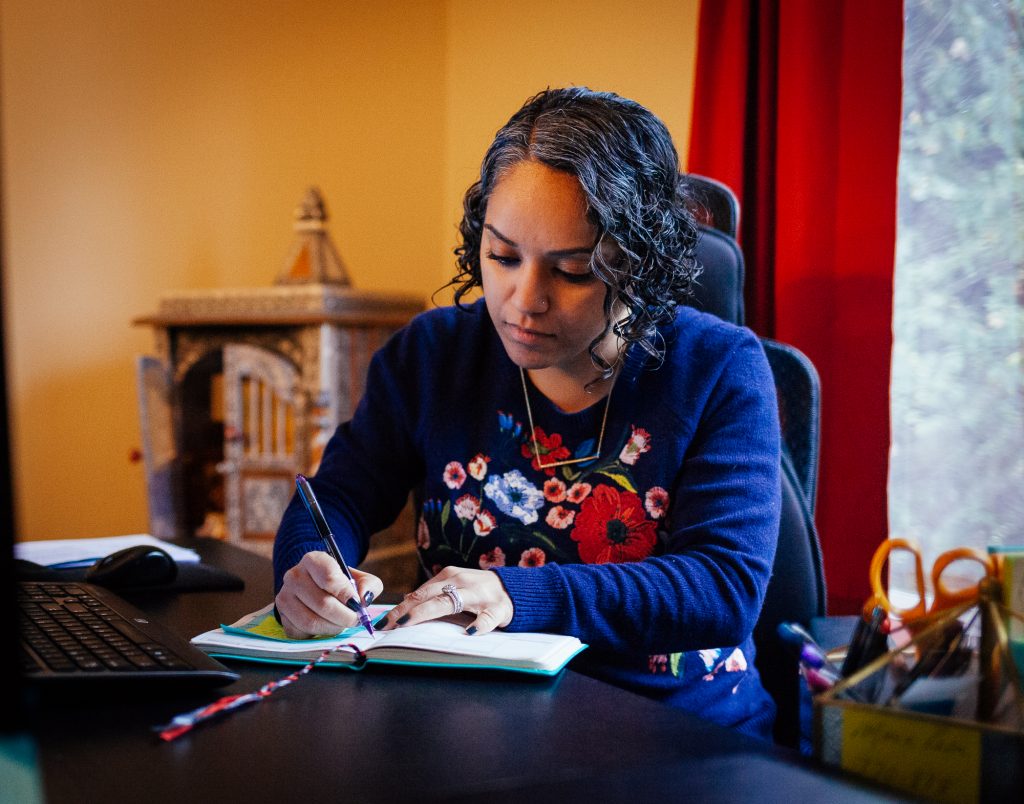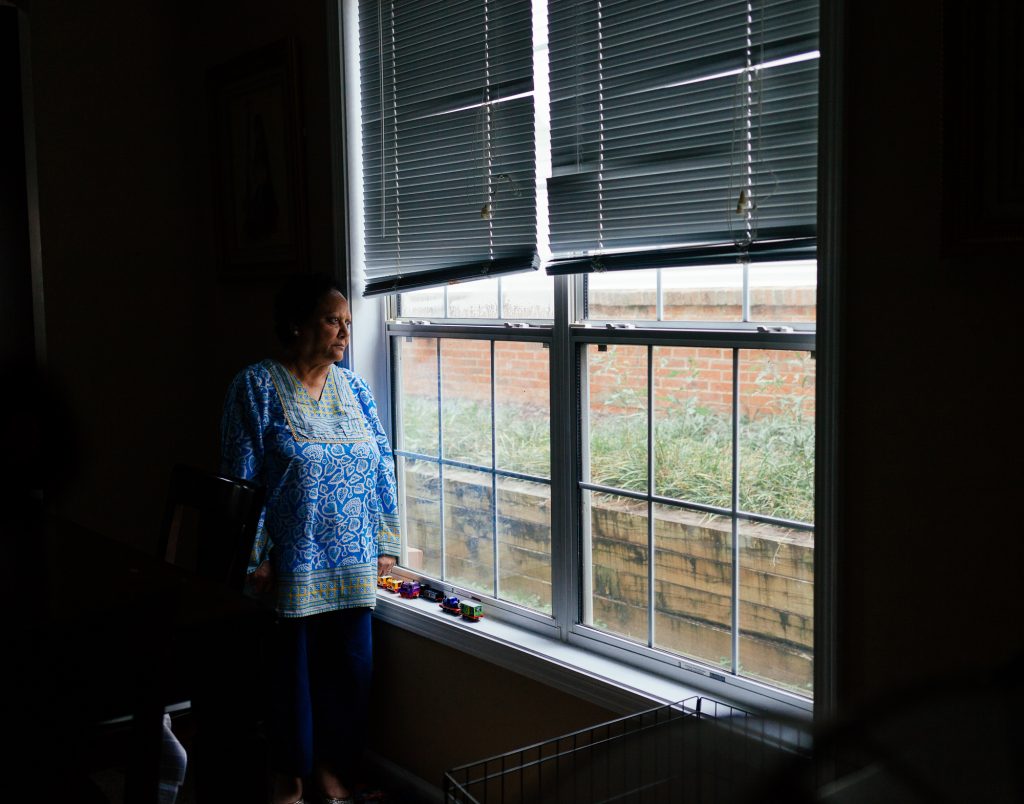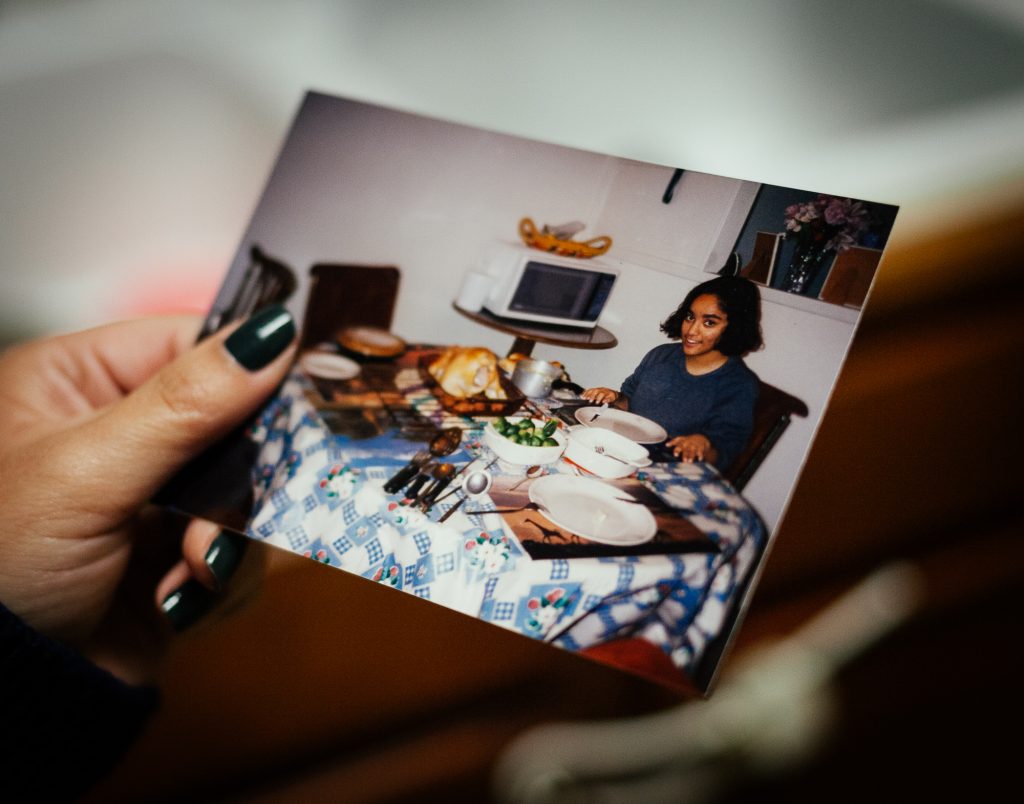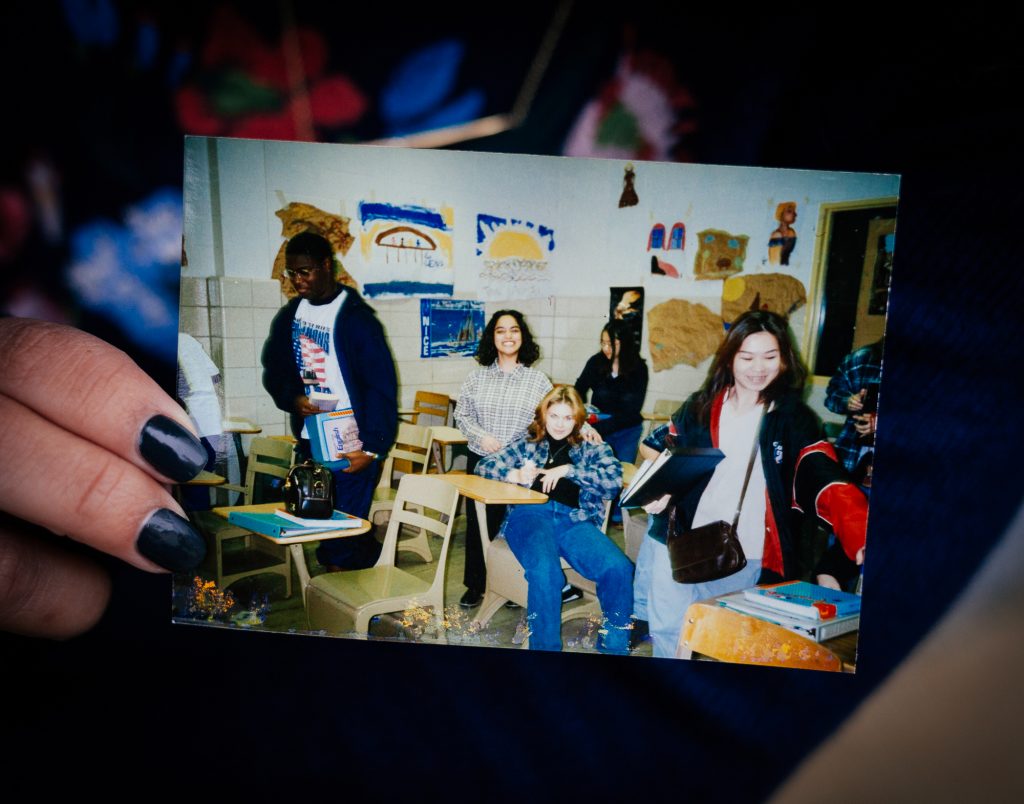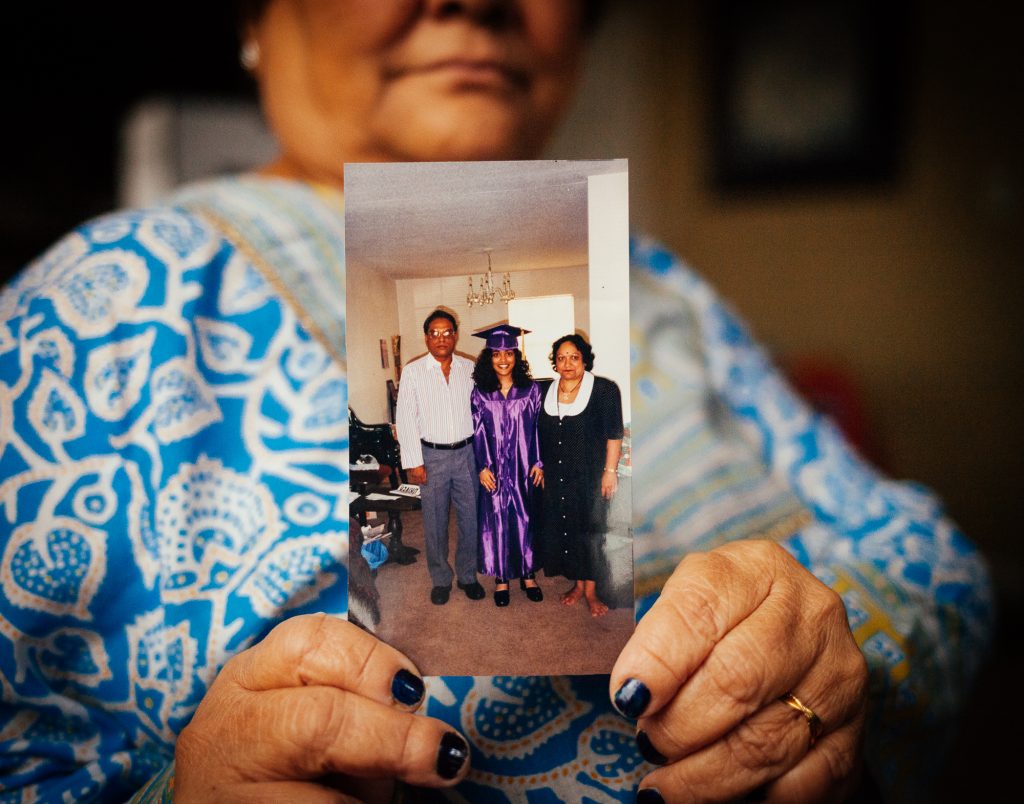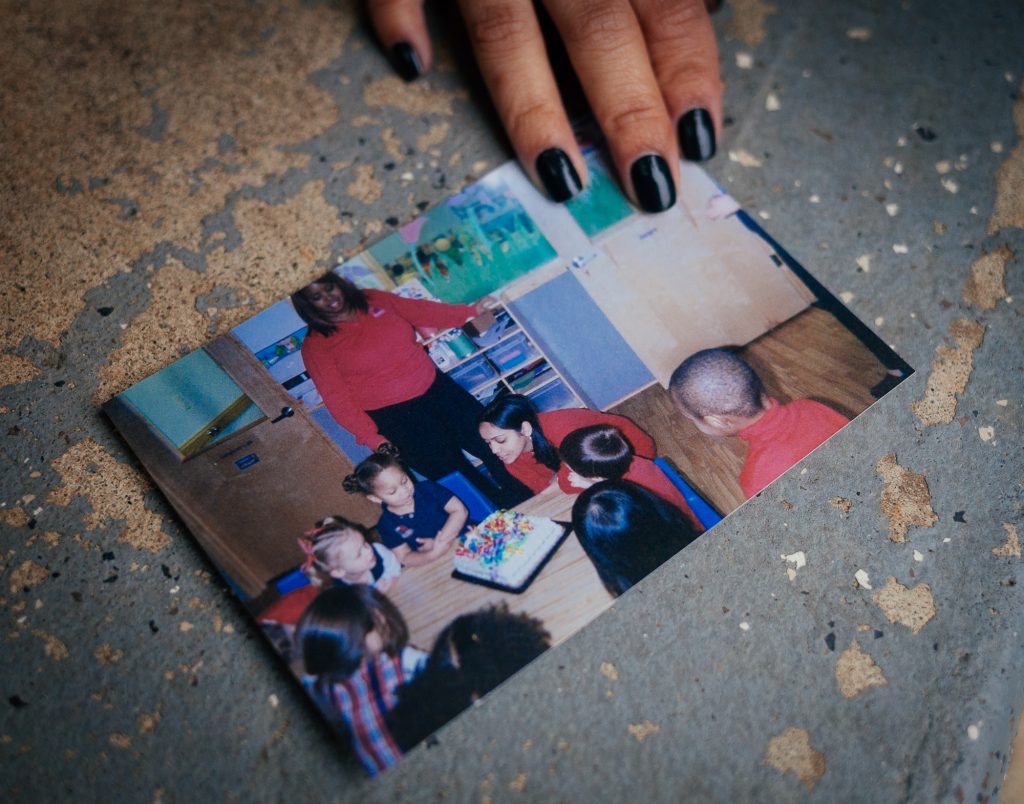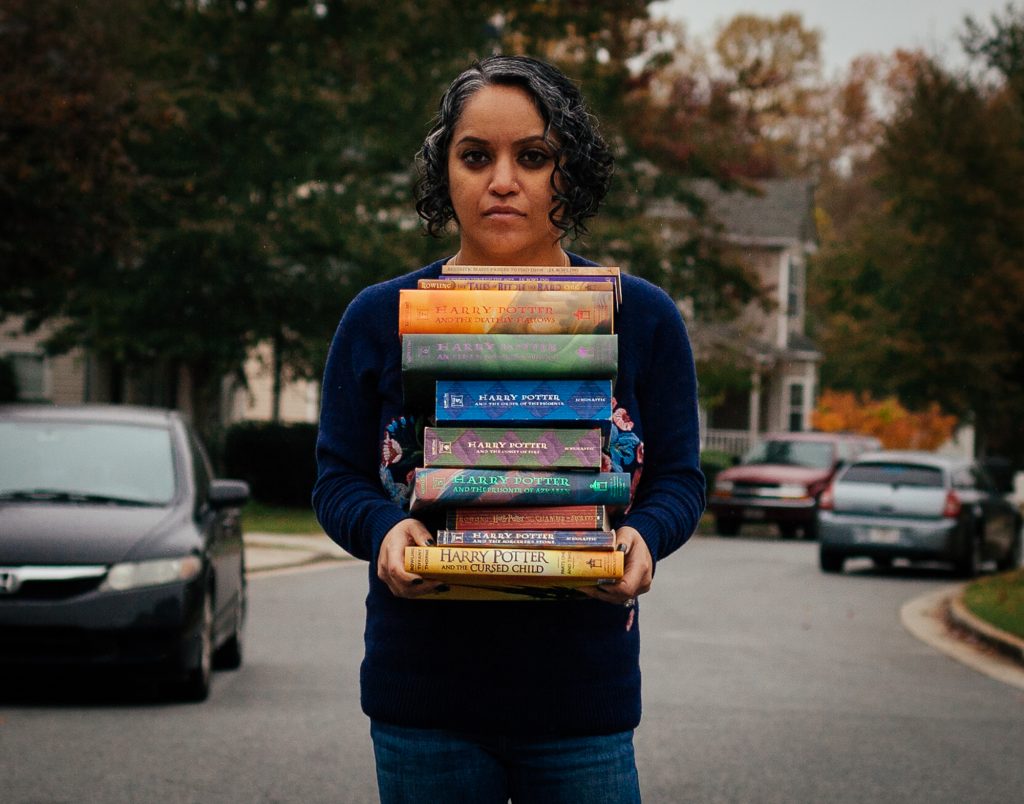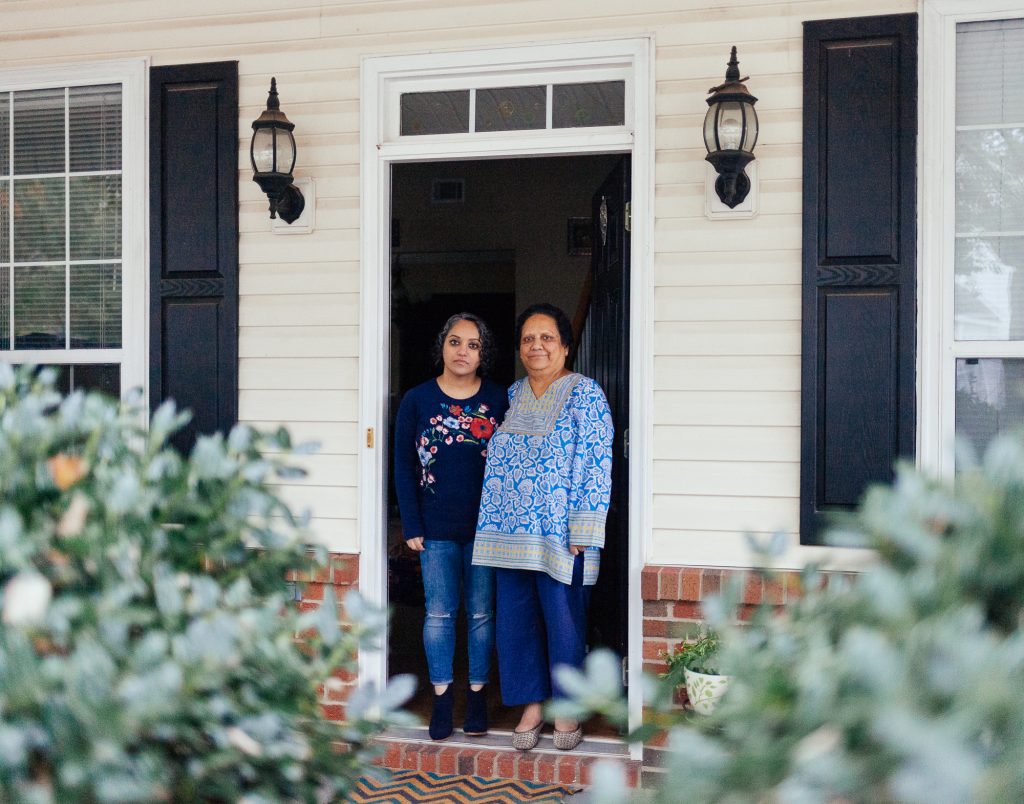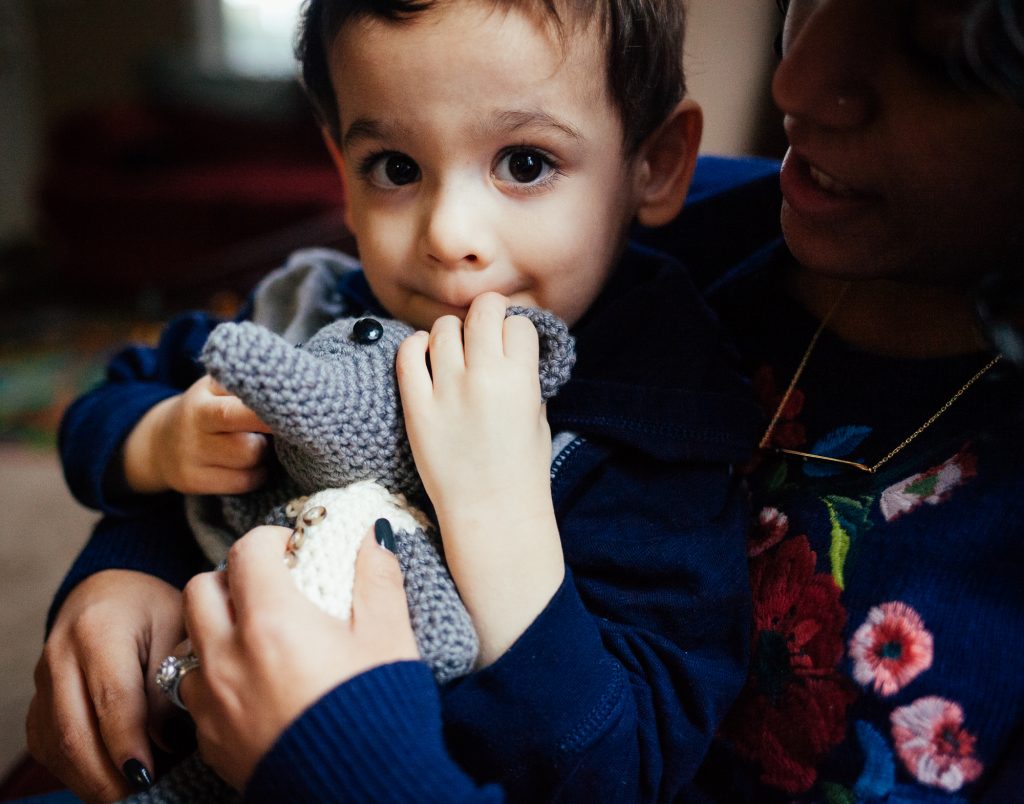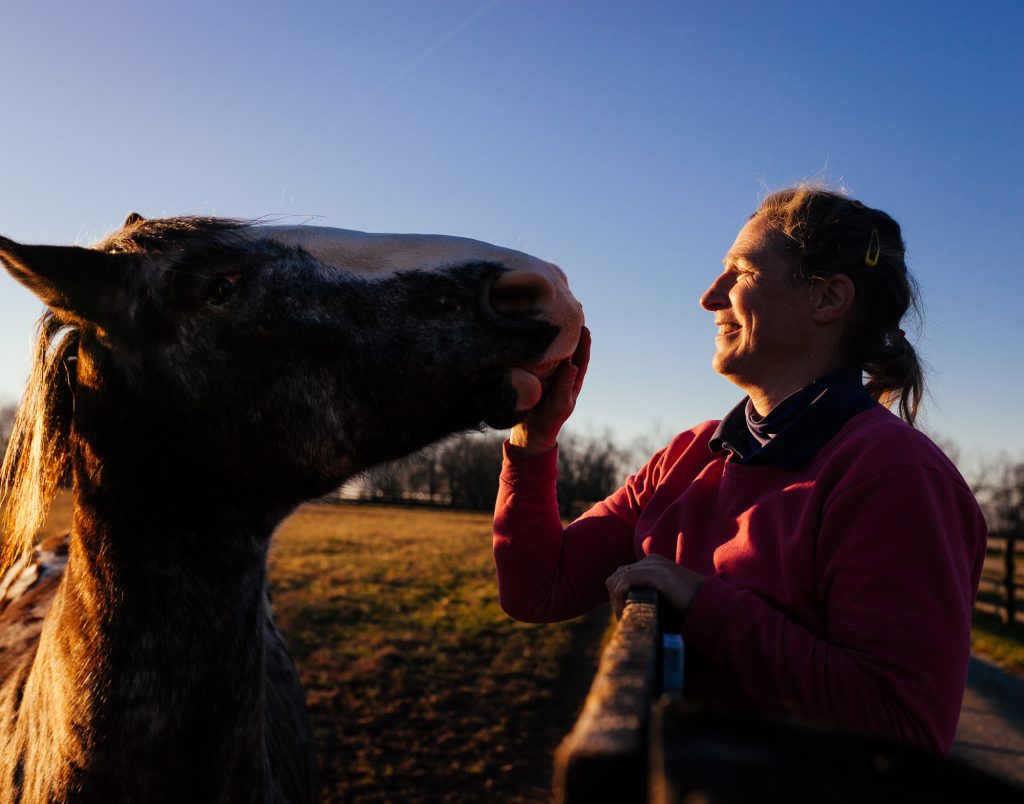
Childhood
Vicky was born in Slough, a town she describes as a “busy dirty place” (right next to the “very posh” Windsor) and says British people make a lot of jokes about Slough. Vicky’s sister used to go for riding lessons and Vicky tagged along. For the first couple of years, she was terrified by the thought of riding. Once she got over the fear, she fell in love.
“When you are little, they are huge. You’re not strong enough to hold them, so you fall off. You have to be quite tough to get going. When I was 11, I got my first pony. He was like a dream pony. I used to go to shows, do jumping, and win rosettes. My biggest dream was having a room full of rosettes.” (audio below)
Vicky’s grandfather was really into horse racing – specifically gambling at horse races. He would take Vicky to the tracks, and she was awe-struck by these “big beautiful animals and their power and strength.” When Vicky was 19, she got her first chance to ride an actual racehorse.
“It is like driving a mini and then suddenly going and driving a Rolls Royce. You just can’t believe it. Wow, this is amazing! When you are going flat out on them, it’s the best feeling in the world.” (audio below)
Pat
Vicky’s husband Pat was born in New York City to a third-generation Irish bricklaying father and a mother from the United Kingdom who taught Irish step dancing. Pat’s father passed away when he was five, and his mother wanted to go back to the UK to be with her family. Despite leaving the US at five, Pat always held on to his American identity. He figures it was his way of holding on to his father. (audio below)
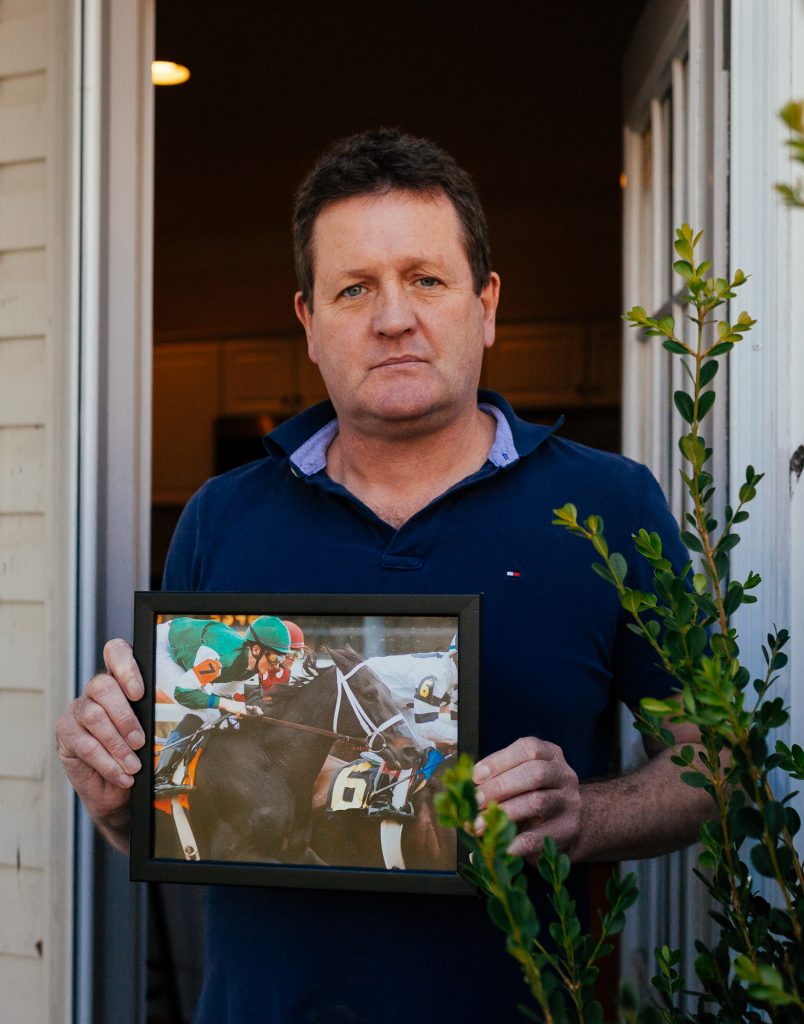
He spent a couple of years in London with his grandparents, and then his mom married another Irishman. They moved out to the quiet suburbs, near Epsom, home of the famous Epsom Derby. When Pat’s parents took him for pony riding lessons, he was instantly hooked. Pat ended up getting his own pony, doing show jumping, and then getting into horse racing. He tried to become a jockey [see the photo below] but discovered that it isn’t the best choice for an asthmatic.

Pat loves the connection he feels to the horse when riding and also the adrenalin rush. He finds the features of horses comforting. Even though they are big and robust, they aren’t aggressive.
“It is a timeless thing. Horses really were the things that first helped people be more than they could be on their own.”
Pat also feels like horses bring him closer to nature.
“If you are out riding on a trail, you have a different perspective than on foot. You can see more, and wild animals don’t scatter. It’s a nice experience. Except when you are on a thoroughbred, then it is a frightening experience. Some people get a bit addicted to it. You feel alive.” (audio below)
Equine Studies
Pat and Vicky both enrolled in Equine Studies – the first one of its kind in Europe – at Warwickshire College. They studied anatomy, physiology, nutrition, biomechanics, and everything else required to become a “competent horse person.”
It was at the “Horse Racing Club” Pat organized where they first saw each other. Vicky remembers Pat getting up to talk, and saying to her friend, “oh, look at him, isn’t he awful!” Three months later, they got chatting at a college bar and began dating.
“It was easy being around each other from the start.”
Vicky jokes that they have been together so long; she could have murdered Pat and gotten out of jail by now! (audio below)
When they finished their finals at college in 1994, they decided to take a summer holiday to Kentucky. They had a great time, and the night before they were going to return to the UK, Pat turned to Vicky and said, “this is where we want to be.” Vicky didn’t think so.
“I literally begged Pat to come back to England with me.”
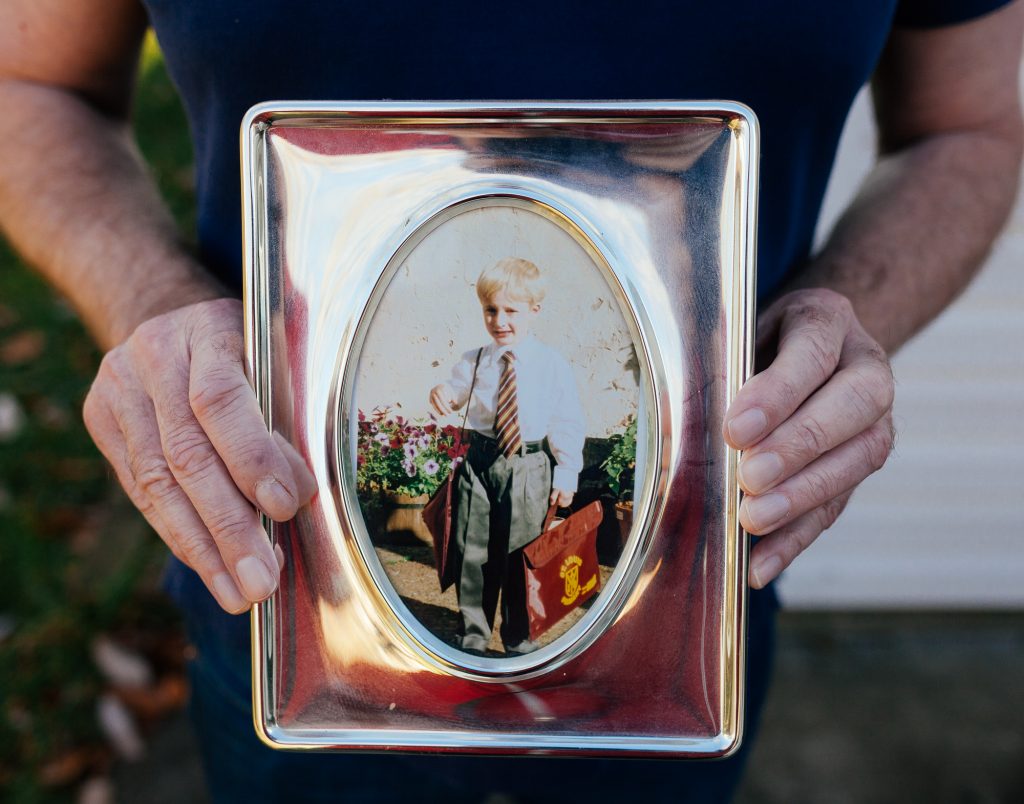
Jack
Vicky and Pat married in 1996, and by that point, had their own stable yard with horses where Pat trained, and Vicky helped him. That same year they had their son Jack [see the above photo].
“The first thing he ever saw when he went out of the house after coming from the hospital was a horse’s head over the door. He’s been good with animals his whole life.”
When Jack was a boy, and people would ask what he wanted to be, the answer was always a “jockey,” and that dream never died. Pat and Vicky signed Jack up for pony racing.
“I didn’t think he would have the strength to get the pony to the start, let alone ride in the race. But he did and fell off at the start. The race was off, and he finished third. I thought, ‘Oh, hell! He’s going to be a jockey!‘”

They tried to steer him away from working with horses, but Jack just got better and better, and admittedly, Pat and Vicky have put some of their own dreams into Jack.
United States
Vicky tried to convince Pat and Jack they had everything they needed in England. Jack went to Kentucky for a week exchange as part of the British Racing School, and after returning, every day, he asked when he could go to the US again to race.
They waited a year so Jack could finish school. Vicky and Jack applied for visas through Pat, to help make their son’s dreams come true, It took 18 months, and when the green cards were approved, they only had six weeks to pack up 25 years of their lives together and leave before they expired. Vicky had expected they could leave England whenever they wanted, but that wasn’t the case.
When they landed in New York in 2014, it was Pat’s first time back to his place of birth since he was a kid.
“The things you don’t do are the biggest regrets in your life, and I had it in me to come and spend time in America where I was born, and I’ve done it.”

Adjusting
When they arrived in Kentucky, Vicky couldn’t stop crying and continued to have “tears for the first month”. She felt useless and lost. They needed to find a place to live, and she hated driving the big truck they got. The second time Jack raced in Kentucky, the horse broke its leg, and Jack went down with it. It gave them a real scare, and Vicky started to really question why they had moved to the US.
Vicky had to stop watching Jack race – it is easier on her nerves.
“The way I deal with it is I don’t watch him, yet when he does win, and you are there, it is the best thing ever. When he does fall, your whole world stops. We’ve been lucky so far. I always say to him the day you don’t want to do it, you stop. It’s been a roller coaster.”
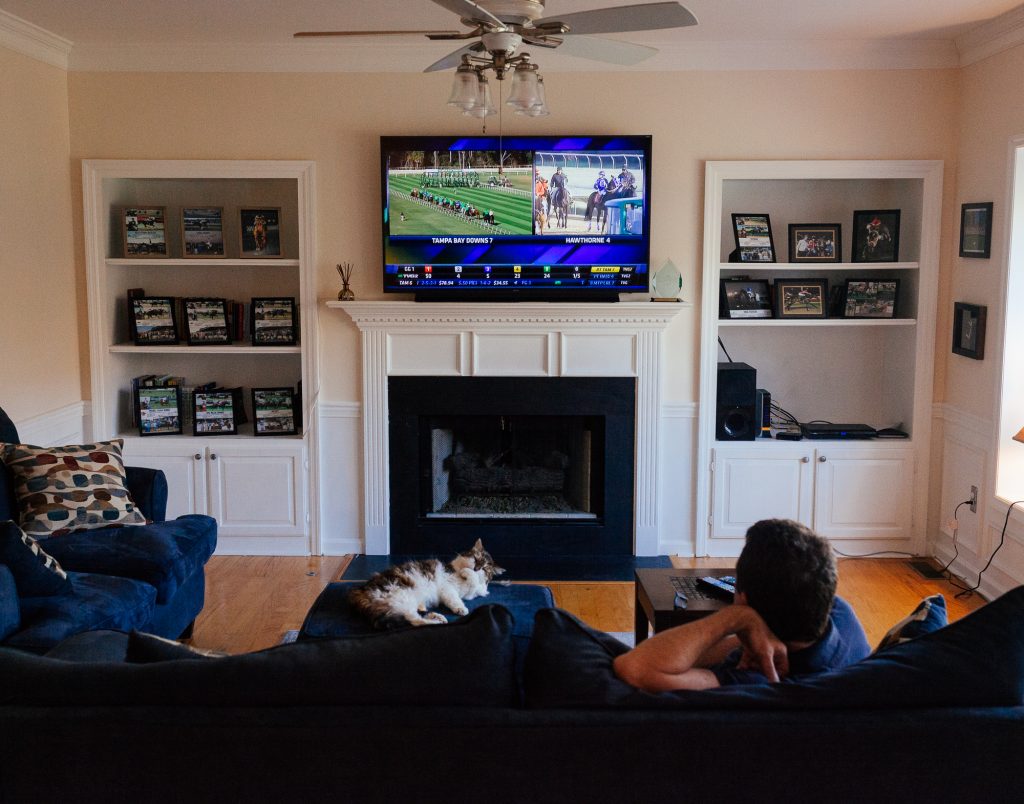
Jack says he hardly remembers England now, but Pat is much more reflective. He realizes had they come to the US for a year, then headed back to the UK, it would have been enough for him, but he knows how much Jack loves living in the US.
“I know a lot of people emigrate out of harsh economic necessity, but even when you have a choice, it’s a tradeoff you gain something and lose something.”
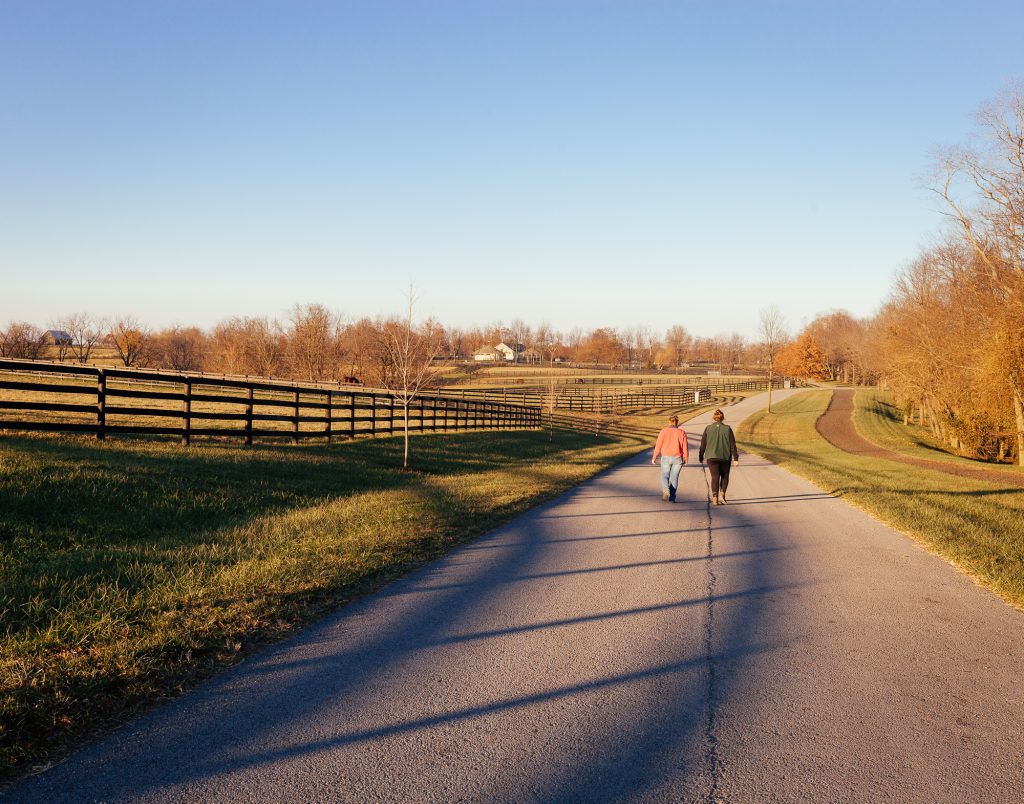
Lexington
Ultimately Pat and Vicky like where they live in Kentucky – rolling hills and giant trees. One thing that stuck out to them when they first arrived is how many people wear jeans and t-shirts. It’s a lot different than the New York Pat remembers of “slacks and collared shirts”. They like how laid back everyone is in Kentucky.
“I thought the Irish were laid back, but the Kentuckians make us look like strung-out messes – and in the summer, they’re even more laid back!”
Father & Son
When they arrived in the US, Jack, age 17, didn’t have a driver’s license. To race, he needed to travel to nearby states and the five different Kentucky tracks. That first year, Pat, as Jack’s “chauffeur”, drove 80,000 miles. They would leave at four in the morning and arrive back home at midnight. That year of being together non-stop involved a lot of tears and laughter, as they tried to get Jack established in the racing scene. Pat was doing something with Jack that he never got to do with his father.
“It was the first time in my life that I ever really thought about my father. He was gone, and I was in another country. When I came back here, it felt quite strange. In the end, I saw a counselor and spoke about it. It was quite emotional. I never really grieved for him.” (audio below)
After a year and a half, Jack got his license and could drive himself. Pat cherishes that extraordinary experience of spending so much time on the road with his son. Pat was a racehorse trainer for nearly two decades. It was so special that Pat decided to take time off to write about the experience. In 2018, he published Around Kentucky With the Bug.
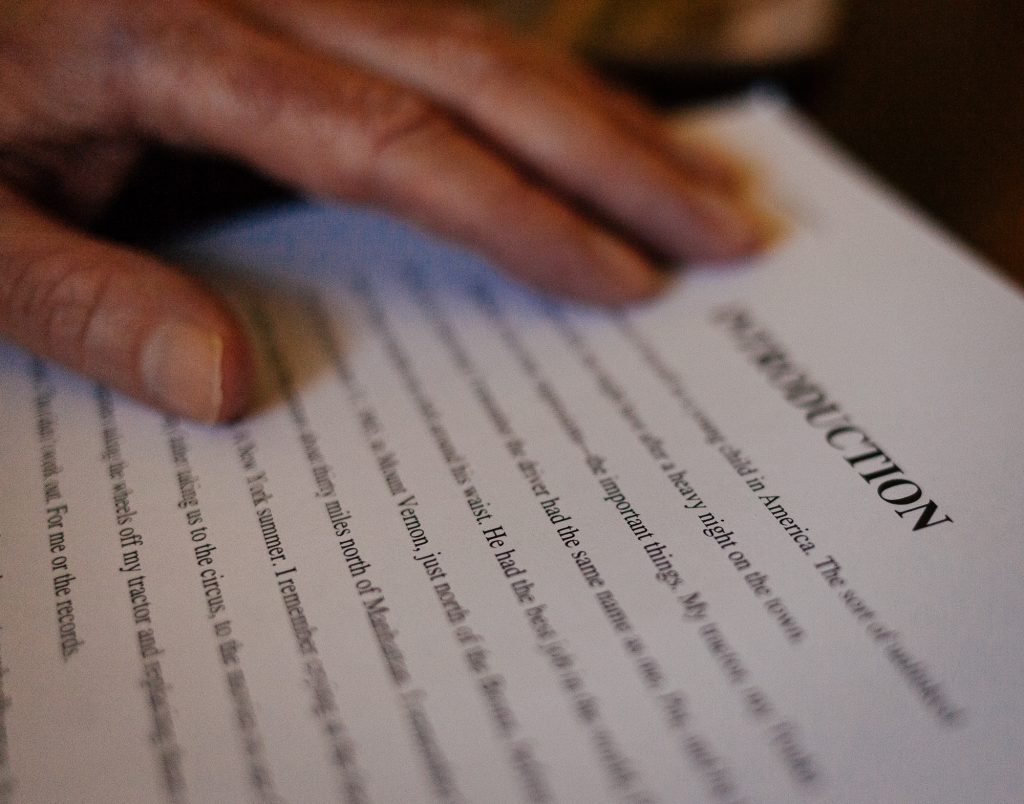
WinStar Farms
When they arrived in Kentucky, Vicky didn’t plan on working with horses. She had so many incredible years in England with horses and figured nothing would be the same in the US.
“I said, ‘I’m never going to ride a horse again. I was done with that.’ And then you find you miss them, they are in your blood, and you just can’t get away.”
She started her job at WinStar Farm in 2016, working as the Barn Foreman, who oversees the smooth running of the barn and assists the trainer.
“Just being around horses every day is good for your soul. They don’t ask too much of you. I mean, they drive you crazy: they bite and kick, and push you around and don’t do what you want them to do, but they are so beautiful. I prefer being around them to people, I guess. They don’t judge you, and they forgive you. I guess I’m a half-horse!” (audio below)
Vicky loves the people she works with and finds that, in general, people in the US are more open and easy to connect with. Christie, from New Jersey, is one of Vicky’s coworkers [see the above photos].
“It is nice being around young people. I think it is a bit of the mother thing. We don’t have that much in common, and Christie’s so much younger than me, but when you work with horses, you have them in common.” (audio below)
Home
Vicky and Pat miss their family in the UK, including two horses they still own back in England, that they consider part of their family. Vicky went back to the UK recently and was surprised to find herself missing Kentucky.
“It was weird; I wanted to come back here to Kentucky. This is home now. I prefer the weather here. It makes you feel great to be alive. You don’t get that in England. Everyone is miserable.”
Future
In the future, Pat and Vicky hope Jack continues to pursue his dreams.
Pat says he has passed the stage in his life of grand ambitions and feels grateful for what he has. He jokes that he hopes his book “sells better than Harry Potter”!
Vicky hopes that Jack will one day have a family, and she will have grandchildren, but she emphasizes that it is all up to him. She also would love to open a cat sanctuary one day, with a few horses there as well.
*Update: Since the interview, the two horses (who are like family) in England, have now immigrated to Kentucky too. At the beginning of 2020, their son Jack bad accident breaking a collar bone and smashing his whole face. He fought hard to return to racing and is now competing again. Vicky and Pat, are happy (for their nerves’ sake) to know that Jack only plans on competing for a couple more years tops.
#FINDINGAMERICAN
To receive updates on the book release and exhibition of “Finding American: Stories of Immigration from all 50 States” please subscribe here. This project is a labor of love and passion. If you would like to support its continuation, it would be greatly appreciated!
© Photos and text by Colin Boyd Shafer | Edited by Kate Kamo McHugh. Quotes are edited for clarity and brevity.

